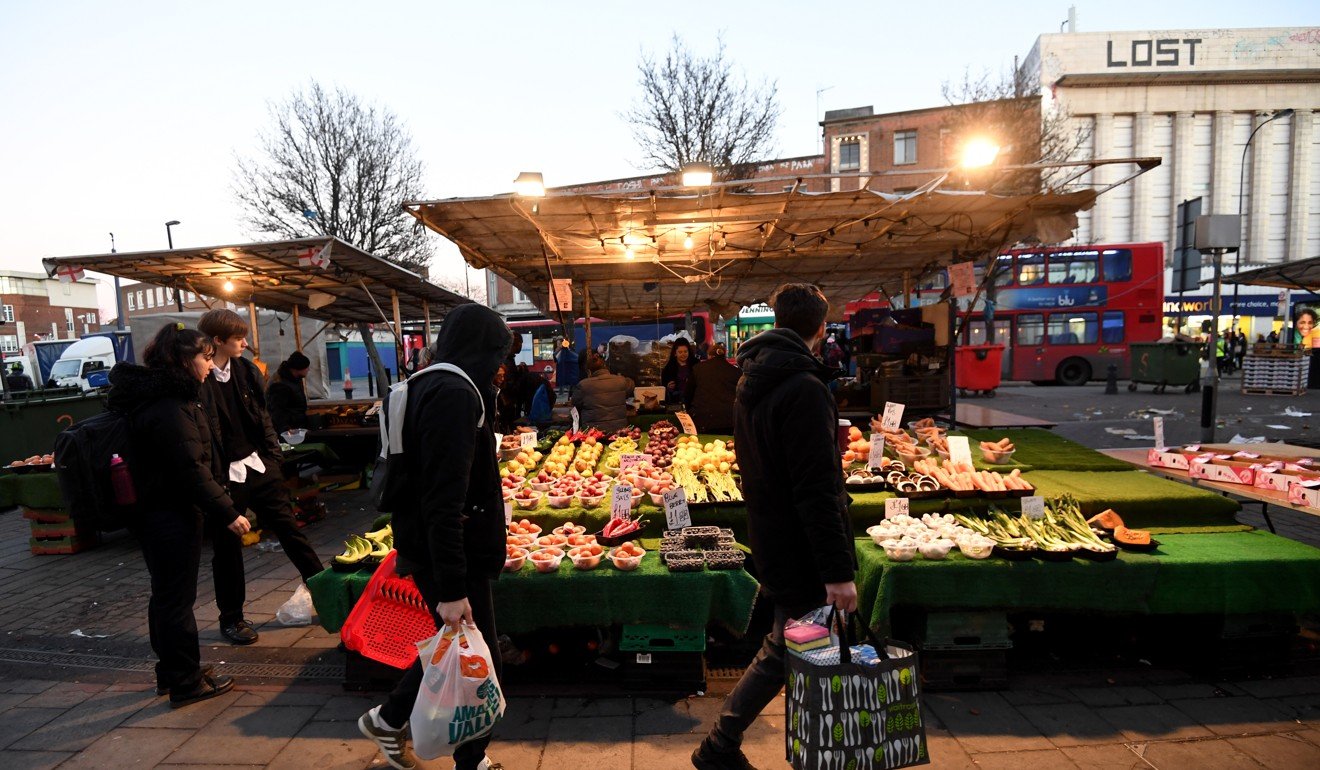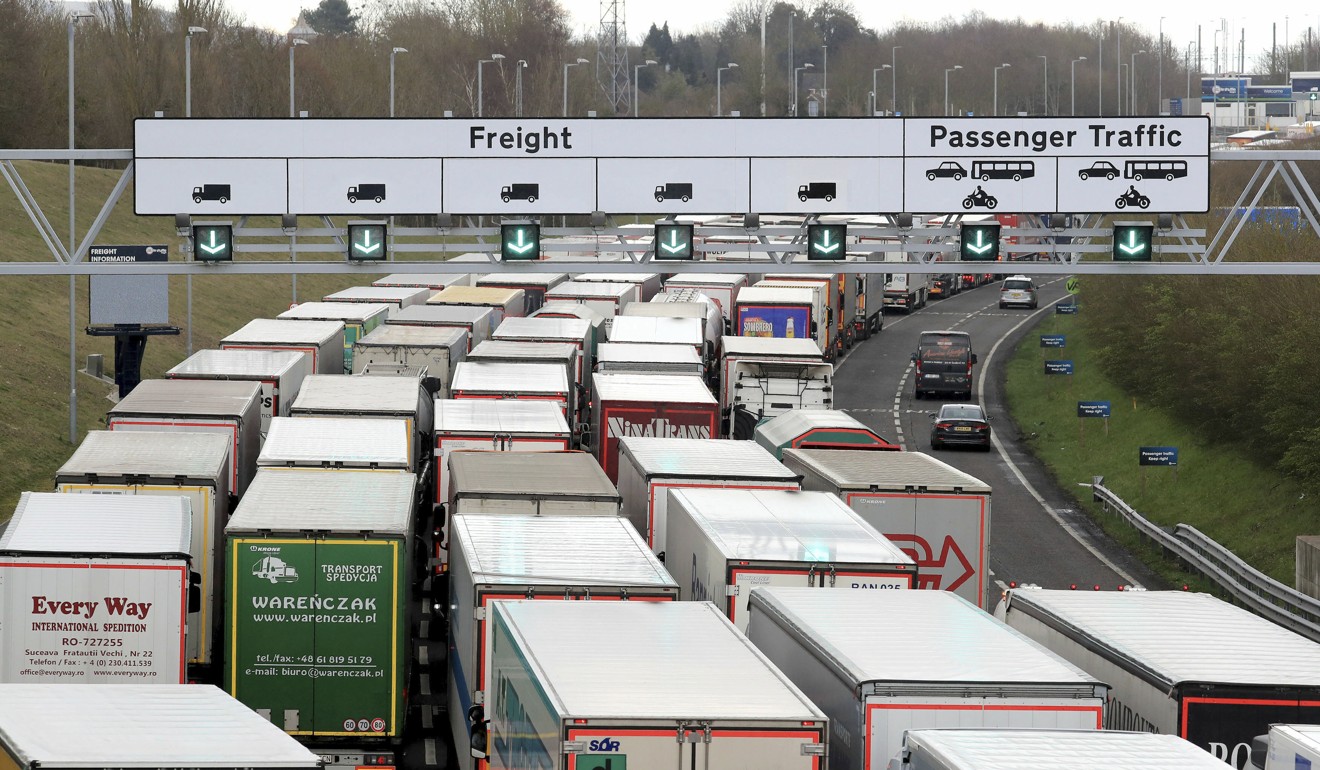
No-deal Brexit warning: leaked government docs say UK faces food, fuel and drug shortages
- Newspaper says document had been compiled this month to set out the ‘most likely aftershocks of a no-deal Brexit rather than worst-case scenarios’
Britain will face shortages of fuel, food and medicine if it leaves the European Union without a transition deal, jamming ports and requiring a hard border in Ireland, official government documents leaked to The Sunday Times show.
The Times said the forecasts compiled by the Cabinet Office set out the most likely aftershocks of a no-deal Brexit rather than the worst case scenarios.
They said up to 85 per cent of lorries using the main channel crossings “may not be ready” for French customs, meaning disruption at ports would potentially last up to three months before the flow of traffic improves.

The government also believes a hard border between the British province of Northern Ireland and the Republic would be likely as current plans to avoid widespread checks would prove unsustainable, The Times said.
“Compiled this month by the Cabinet Office under the code name Operation Yellowhammer, the dossier offers a rare glimpse into the covert planning being carried out by the government to avert a catastrophic collapse in the nation’s infrastructure,” The Times reported.
Can UK’s Liberal Democrats stop Brexit?
“The file, marked ‘official-sensitive’ – requiring security clearance on a ‘need to know’ basis – is remarkable because it gives the most comprehensive assessment of the UK’s readiness for a no-deal Brexit.”
The United Kingdom is heading towards a constitutional crisis at home and a showdown with the EU as Prime Minister Boris Johnson has repeatedly vowed to leave the bloc on October 31 without a deal unless it agrees to renegotiate the Brexit divorce.

After more than three years of Brexit dominating EU affairs, the bloc has repeatedly refused to reopen the Withdrawal Agreement which includes an Irish border insurance policy that Johnson’s predecessor, Theresa May, agreed in November.
Johnson will this week tell French President Emmanuel Macron and German Chancellor Angela Merkel that the Westminster parliament cannot stop Brexit and a new deal must be agreed if Britain is to avoid leaving the EU without one.
The prime minister is coming under pressure from politicians across the political spectrum to prevent a disorderly departure, with opposition leader Jeremy Corbyn vowing to bring down Johnson’s government in early September to delay Brexit.
Jeremy Corbyn: Britain’s saviour or great white nope?
It is, however, unclear if lawmakers have the unity or power to use the British parliament to prevent a no-deal departure – likely to be the United Kingdom’s most significant move since World War II.
Opponents of no deal say it would be a disaster for what was once one of the West’s most stable democracies.
A disorderly divorce, they say, would hurt global growth, send shock waves through financial markets and weaken London’s claim to be the world’s pre-eminent financial centre.
Brexit supporters say there may be short-term disruption from a no-deal exit but that the economy will thrive if cut free from what they cast as a doomed experiment in integration that has led to Europe falling behind China and the United States.

